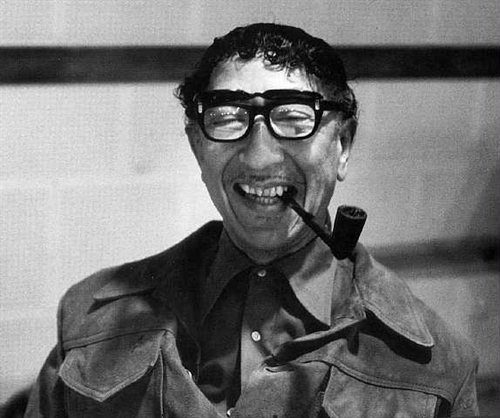Adolphus Anthony Cheatham was better known as Doc Cheatham (June 13th 1905 – June 2nd 1997). He was a jazz trumpeter and singer. Cheatham had been a member of some of the most prominent jazz groups in the 1920s. His career was praised again in later decades. Cheatham also agreed with the criticism that he was the only jazz musician who created his greatest work after age 70. Cheatham was born and raised in Nashville, Tennessee. Cheatham noted that there wasn’t jazz music in Nashville when he was a child. He was first exposed to the style through early recordings and touring bands at the end of 1910s. His family had planned for him to become a pharmacist, but he decided to pursue music. He started playing trumpet and soprano saxophone at Nashville’s African American Vaudeville theatre. Cheatham toured with blues singers on The Theater Owners Booking Association circuit. He was influenced by jazz musicians Henry Busse, Johnny Dunn and later King Oliver when he moved to Chicago in Chicago in 1924. Cheatham was amazed by Oliver’s playing. Cheatham followed the jazz King everywhere. Cheatham was given a mute by Oliver, which Cheatham kept and used throughout his career. Louis Armstrong, who returned to Chicago the year after Oliver’s death, was a further revelation. Cheatham would have a lasting influence from Armstrong. Cheatham was a member of Albert Wynn’s band and sometimes substituted for Armstrong at Vendome Theater. He also recorded on sax and Ma Rainey, before moving to Philadelphia in 1927. There he worked with Wilber de Paris and Bobby Lee before moving to New York City in the following year. After a brief stint with ChickWebb, he moved to Europe to join Sam Wooding’s group. Cheatham was back in the USA in 1930. He played with Marion Handy, McKinney’s Cotton Pickers, and then landed a job at Cab Calloway. From 1932 to 1939, Cheatham was Calloway’s main trumpeter. In the 1940s, he performed with Teddy Wilson, Fletcher Henderson and Benny Carter. After World War II, he began to work regularly with Latin bands in New York City. He also continued Latin gigs and played with Sammy Price and Wilbur de Paris. After starting his own Broadway band in 1960, he went on to tour with Benny Goodman for five more years. Doc Cheatham did a rigorous self-assessment in the 1970s to improve his playing. He taped himself and listened to the recordings critically. Then he tried to eliminate all cliches. Doc was rewarded with increasing critical attention. On May 2, 1977, Cheatham’s singing career was almost accidental. He recorded in Paris. Cheatham sang “What Can I Sing Dear After I Say Sorry” as a level and microphone test at the beginning of Sammy Price’s recording session. The track was released on Doc Cheatham: Good For What Ails You because the miking was good right from the beginning and the tape machine was already running. Cheatham’s singing was very well received. He continued to sing and play music throughout his career. In his last decade, Cheatham traveled extensively in addition to his Sunday gig at Sweet Basil in Manhattan’s Greenwich Village. He met Nicholas Payton, a young trumpet player, during one of his many trips to New Orleans. The 1996 recording of the two trumpeters and pianist Butch Thompson for Verve Records, Doc Cheatham, and Nicholas Payton won them a Grammy Award. Doc Cheatham played until the day before his death. He was only eleven days short of his 92nd Birthday. from http://en.wikipedia.org/wiki/Doc_Cheatham
